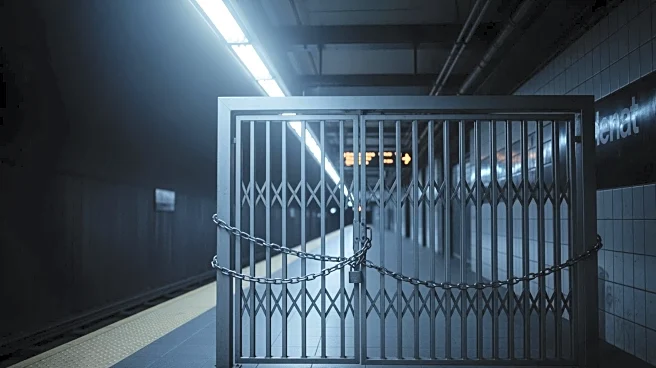Rapid Read • 8 min read
Chris Cuomo, a NewsNation anchor, faced widespread criticism after sharing a deepfake video of Representative Alexandria Ocasio-Cortez. The video falsely depicted Ocasio-Cortez denouncing Sydney Sweeney's American Eagle ad campaign as 'Nazi propaganda.' Cuomo posted the video on his social media account, failing to notice the watermark indicating it was a parody created with AI. The incident occurred while Congress was not in session, further highlighting the video's inaccuracy. Ocasio-Cortez responded to Cuomo's post, urging him to use critical thinking skills and accusing him of spreading misinformation. The controversy has sparked discussions about the implications of AI-generated content and the responsibilities of media figures in verifying information before sharing it.
AD
The incident underscores the growing challenges posed by AI-generated content, particularly deepfakes, in the media landscape. As AI technology advances, the ability to create convincing fake videos increases, raising concerns about misinformation and its impact on public discourse. Media figures like Chris Cuomo play a crucial role in shaping public opinion, and their actions can significantly influence societal perceptions. The spread of deepfake videos can undermine trust in media and political figures, leading to confusion and potential harm. This event highlights the need for media professionals to exercise caution and verify the authenticity of content before sharing it with the public.
Following the incident, there may be increased scrutiny on media figures and their responsibility to verify information before dissemination. Discussions around the ethical use of AI in content creation are likely to intensify, with calls for stricter regulations and guidelines to prevent the spread of misinformation. Media organizations may implement more rigorous fact-checking processes to ensure the accuracy of shared content. Additionally, public awareness campaigns about the dangers of deepfakes and how to identify them could become more prevalent, aiming to educate individuals on distinguishing between real and fake content.
The incident raises broader questions about the ethical implications of AI technology in media and politics. As deepfakes become more sophisticated, they pose a threat to privacy, reputation, and security. The ability to manipulate public figures' images and statements can lead to significant consequences, including political instability and social unrest. This event may prompt discussions on the need for technological solutions to detect and prevent deepfakes, as well as legal frameworks to address the misuse of AI-generated content.
AD
More Stories You Might Enjoy










